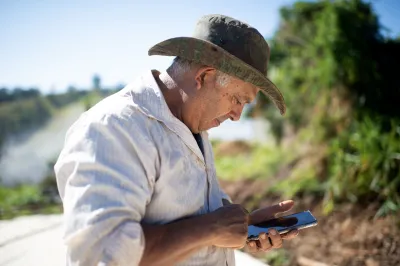Partnering with Private Sector on Branchless Banking
The Pacific has not been a hospitable place for traditional microfinance. Challenging terrain, great distances, dispersed populations and absent infrastructure make labor-intensive operations difficult and “brick and mortar” service points impractical. What the Pacific lacks in strong MFIs and roads, it makes up for in strong regional banks, a few rapidly expanding mobile network operators (MNOs) and a cadre of open-minded central bankers committed to financial inclusion, all of which have become the Pacific Financial Inclusion Programme’s (PFIP) primary partners to address this market failure.
Working with commercial actors with multi-million dollar balance sheets is incredibly rewarding and can be very different from interactions with traditional MFIs. Some lessons we’ve learned may ring true with others:
“Are you talking to me?”
In the beginning we noticed that large corporations see international organizations through the prism of non-profits and NGOs, expecting to be asked for donations and technical support rather than offered it. It was important for us to make our purpose clear and a case for the partnership, in business terms. Our ability to offer to share the risk and cost of groundbreaking financial inclusion projects and to engage at a technical level have been important to build our relationship.
“Don’t bother me with the details”
Our support is offered on a competitive basis to maintain a level playing field. We found that some of the initial proposals we received tended to be general than technical, focused more on their capabilities and less on the proposed project. As one of our partners commented, most of their clients (and even investors) want to know “by when” and “how much” but not the details. No Microfin projections. No SWOT. No Portfolio at Risk. We found it easier to engage with them and accept information in our partners’ formats rather than to impose our method of business planning (i.e. no Microfin!). At the same time, they are accustomed to setting targets for performance-based agreements and take them seriously.
“Have your people call my people”
Financial inclusion efforts are often driven by one or two key champions whom we love for their enthusiasm and ability to navigate their internal structure. We learned that it is important to make sure that these champions have the leadership’s support or risk that the project faces delays or even cancellation. We now ask for commitment letters from both senior management and the board with proposals and we seek to meet the CEO or the division head. The corporate world can be full of promotions, transfers, restructuring and redundancies so it helps to build a relationship beyond our champion.
“If you’d like to speak with technical support, please press three…”
Even if a financial inclusion project is new and a small part of their overall business, it usually requires multiple departments and support units to implement. We found it helps to avoid delays and avoid misunderstandings if we make sure the departments and units are familiar with the overall project at the beginning. Getting access to these people is not always easy for us or comfortable for our partners who are accustomed to segregated sales (or client management) and support functions. But it really helps to know who does what related to our projects and we think our partners do appreciate that we understand their internal structure.
“Allow me to introduce…”
MNOs seldom have a relationship with institutions such as central banks and ministries that we as funders have been engaging with for decades. As a commercially disinterested party we play an important role connecting people who may not work together, but could.
“Can we take it slow?”
MNOs are also fiercely competitive, ambitious and tight-lipped. Their business model requires protecting new ideas and products and getting them to the market – fast. This drive and pace is incredibly refreshing. However the “race to market” model doesn’t work quite so well with financial services, the piloting of which we firmly believe requires careful and thorough market research, product development and testing. Taking all of these steps may feel painfully slow and public to MNOs.This requires compromise and understanding on both of our parts. But once they get it right, they have a corporate marketing machine ready to sell it.
“I could tell you, but I’d have to kill you…”
Banks are accustomed to high levels of reporting, public disclosure and scrutiny. MNOs are not. Even basic data from MNOs, such as how many mobile wallet subscribers they have, can be sensitive and protected. Since one of our goals is to build competitive financial sectors, we often work with competing companies, so keeping confidence is paramount to our work. This challenges our public disclosure requirements, let alone share statistics, results and lessons learned. We’ve agreed with our MNO partners to guard their data carefully and that disclosure of most information must be by mutual consent.
The shift from microfinance to financial inclusion necessitates addressing market failure by bringing the financial system to the people—including big companies - that donor agencies do not traditionally engage with. Commercial Banks and MNOs make great partners, reaching hundreds of thousands of clients and often provide leverage to donor funds by spending fourfold or more than we do in our partnership with them. They also bring very talented people into the mix, some of whom have become impassioned advocates for financial inclusion, both inside and outside of their corporation. We have barely scratched the surface of what is possible when we work with the corporate sector and if we are to build a financially inclusive world, we can’t do it without them.
PFIP is a Pacific-wide programme helping provide sustainable financial services to low income households and is funded by the Australian Agency for International Development (AusAID), UNCDF, the European Union, and the UNDP’s Pacific Centre. More information can be found at www.pfip.org.
UNCDF’s Financial Inclusion work is focused on the five largest Pacific countries: Papua New Guinea (PNG), Fiji, Solomon Islands, Vanuatu, and Samoa.




Add new comment